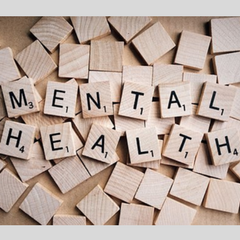
Show Your Support for PTSD Awareness Day in June
 Post-Traumatic Stress Disorder is a very real and debilitating condition. Although it has taken time, it now a fully recognised illness and since 2010, awareness of it has grown through PTSD Awareness day.
Post-Traumatic Stress Disorder is a very real and debilitating condition. Although it has taken time, it now a fully recognised illness and since 2010, awareness of it has grown through PTSD Awareness day.
US Congress designated June 27th as National PTSD Day and since 2014, named May National PTSD month. This action has given sufferers of the condition and their supporters, the chance to raise awareness and funds and most importantly, provide the help that is desperately needed.
What is PTSD?
PTSD is a mental health condition that can affect some people after they’ve witnessed or experienced an extremely stressful or even life-threatening event. While many people may think PTSD is mainly experienced by soldiers after they’ve been in combat, it can actually affect people who’ve been through all kinds of situations, including:
- Natural disasters such as an earthquake or flood.
- A serious car accident.
- Sexual assault.
- Death of a close family member.
Also, while there are a range of common symptoms associated with PTSD, not everyone experiences all of them. And, those symptoms can affect people in different ways. The more common symptoms of PTSD include:
- Reliving parts of the trauma.
- Feeling on edge, or extra alert.
- Avoidance of feelings or remembering the past.
- Severe anxiety.
- Depression
- Insomnia
Importance of Mental Health
In recent years, there have been growing signs of increased awareness of the importance of mental health. Importantly, it’s not just regarding adults, but children too. Working to raise even more awareness of mental health disorders such as PTSD has been a big part of the larger movement. It has proved beneficial for all groups whose illness or condition isn’t fully understood by the wider public and helps to make people less fearful of something they don’t understand.

With regards to the impact poor mental health can have on a person, it has been recognised that it can be so difficult as to be considered a disability. The UK Government defines mental illness as a disability when: “it has a long-term effect on your normal day-to-day activity.”
While this isn’t the case for all sufferers of PTSD, it is for many and the more awareness of just how debilitating PTSD can be, the better it will be for everyone who has a disability.
PTSD Sufferers Have Special Needs Too
PTSD sufferers can be affected by their condition so much that they require very specific, special needs care, to help them. And, just like with those who have a disability that means they have special needs, sometimes they will get better and sometimes it’s a case of finding the right way to manage what could be a life-long problem.
Just like people with a physical disability struggle to have control over their bodies, some people who have PTSD struggle to have any control over their emotions and reactions. Because of this, it’s important for people with any kind of disability to support each other, show understanding and do all they can to help raise awareness of every kind of disability, be it physical or mental.

